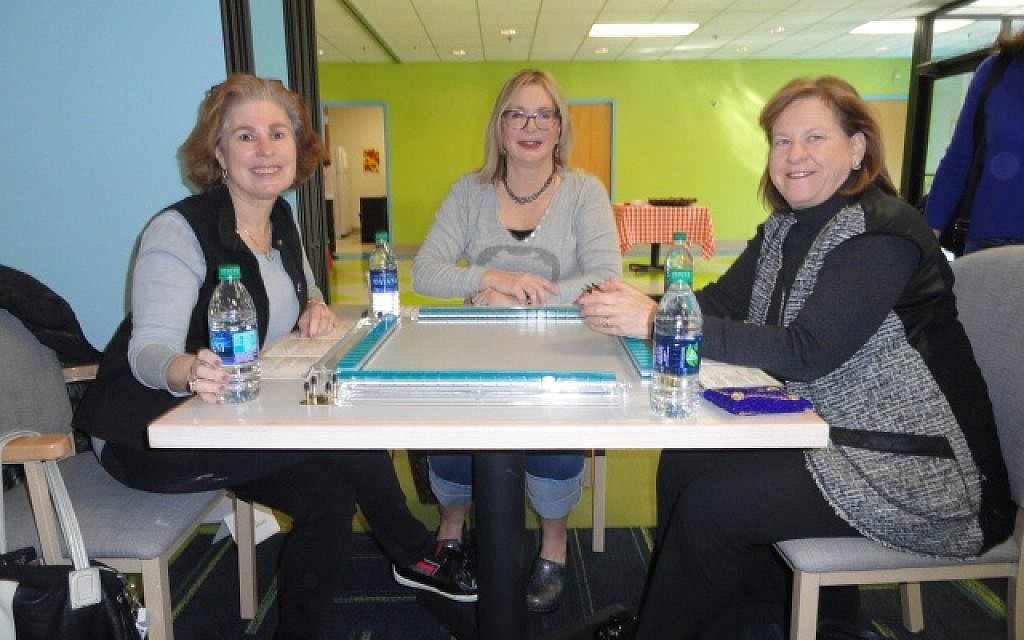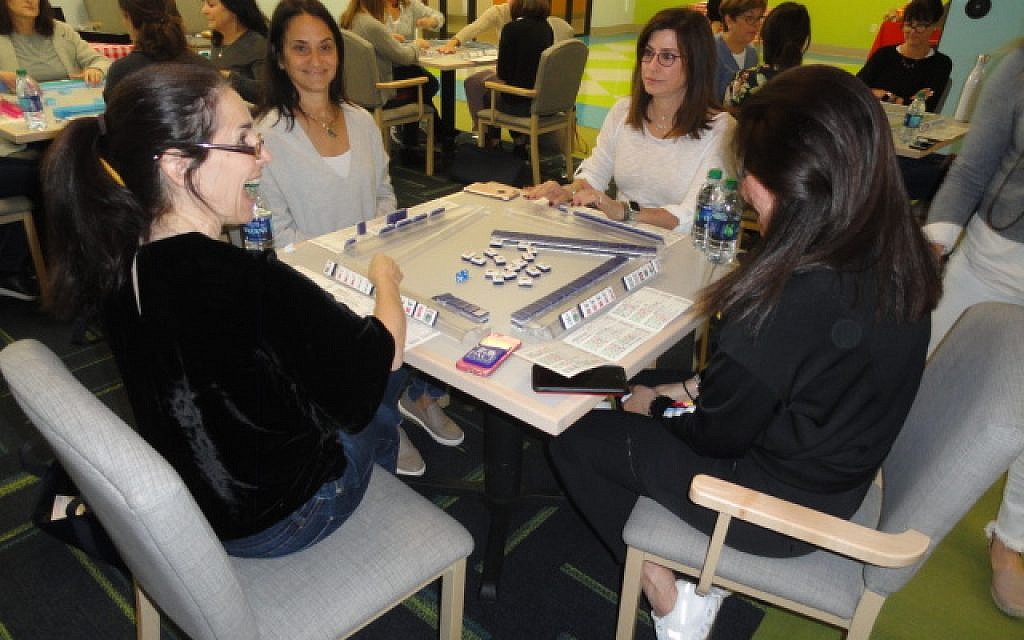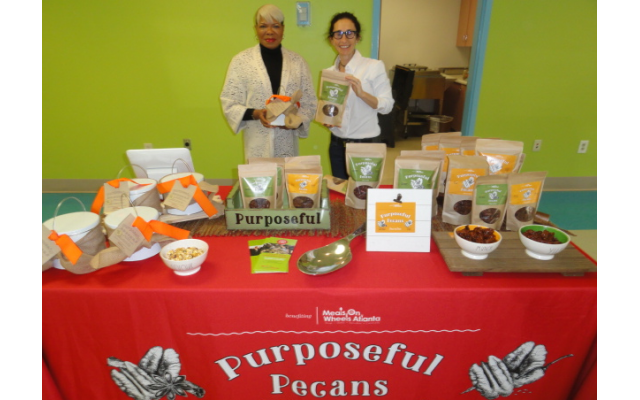Meals on Wheels: A New Approach to Raising Funds
In an arena of so many nonprofits, how do you keep the money coming in? That question was raised by Hillary Baker, a Jewish member of Meals on Wheels Atlanta.
Kevin Madigan is a senior reporter for the Atlanta Jewish Times.
In an arena of so many nonprofits, how do you keep the money coming in? That question was raised by Hillary Baker, a Jewish member of Meals on Wheels Atlanta as the organization held a special “Maj & Mitzvah” fundraising event at its headquarters March 27.
Baker and her colleagues invited 50 women to play the Chinese parlor game of mahjong, hear about meal services for seniors and perhaps be enticed to donate or volunteer, or both, all for a $36 entry fee to the cause.
“We just want to open their eyes a little bit. It’s not controversial; it’s about older adults who need to eat. There’s no religion here, no politics,” Baker said. “It breaks your heart to see someone not have the wherewithal to have lunch.”
About the Maj & Mitzah theme, MOWA Chief Development Officer Andrea Jaron said, “Our four [Jewish] hosts of the event thought mahjong would be a fun and low key way to introduce the group to MOWA. Many of the attendees have a regular game and so it was easy to ask them to do a mitzvah by making a small donation and come to our building to play instead of going to someone’s house.”

Mahjong originated with the Qing Dynasty, which ruled China starting in 1644. It is similar in principle to rummy and has gained widespread popularity in the West in recent years, particularly among women, many of whom are Jewish.
The goal of the game is to accumulate four sets and a pair among your holding of the 152 small rectangular tiles or blocks of wood with ivory or bone faces. The game, also popular online, involves a degree of chance and requires skill, strategy, and calculation.
Baker uses some of the same techniques running Purposeful Pecans. The for-profit enterprise of Meals on Wheels sells Georgia-grown candied pecans made in-house by Robert Gerstenecker, former executive chef at the Four Seasons Hotel Atlanta. Purposeful’s slogan is “Feed the Need.”
“Every bit of the proceeds goes back to feeding seniors,” Baker said. Profits from an 8-ounce bag of pecans can feed four seniors, while a 16-ounce bag’s profit provides food for six. Wednesday’s fundraiser also served to launch the brand’s new popcorn. The products are sold online and at the Peachtree Road Farmers Market every Saturday.
Meals on Wheels first began in the United Kingdom during World War II and, in 1954, emerged in the United States, where programs usually operate at the county level and tend to vary in size, service type and funding. The Atlanta branch opened in 1965 and 97 percent of its operating budget comes from donors and foundations.
According to a 2013 report in the Nutrition and Health journal, home-delivery meals significantly improve diet quality, increase nutrient intakes, reduce food insecurity, and improve life quality in elderly recipients.

Jason Tucker, meal services director, said in a video shown at the event, “There are 100 seniors waiting to receive services from us, coupled with the fact that hundreds of seniors are becoming eligible for our services every day. The need is great, and we have to be ready to meet that need.” The problem now is the Meals on Wheels kitchen, which is not designed to accommodate all the meals that are needed on a daily basis.
“We have to grow and build a new facility to meet that level of need,” Tucker said, a point echoed by CEO Charlene Crusoe-Ingram. She told the AJT, “We are out of space in our kitchen. We will jam as many meals out of there as we can (but) need donors to build our new kitchen. The whole thing is 3 million [dollars]. We are probably at 1 million at this point. The challenge we have every day is to prepare enough meals to feed seniors.”
More funds would allow the organization to eliminate or at least decrease waiting times to beneficiaries, according to Crusoe-Ingram. She also wants to add an education component in the form of a demonstration kitchen in which chefs teach seniors how to prepare nutritious meals efficiently for themselves.
Jaron, who is also Jewish, said that being privately funded, Meals on Wheels does not rely on the government. So the organization’s only limitation is financial. It takes $3,000 to feed one senior for a year. About 1,000 meals a day are produced at Meals on Wheels Tuesday through Saturday (Monday is prep day). The goal this year is to provide 493,000 meals, an increase over last year’s 345,000 meals. Those on the waiting list can receive emergency pantry bags containing shelf-stable packaged food to tide them over until regular deliveries begin.
Fulton County’s waiting list for services to seniors is a year long, “so people call us and ask if we can help them. You get on a waiting list with us too, but it’s less time,” Jaron said.




comments